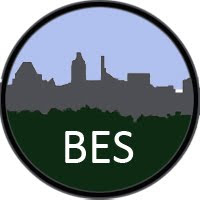Project Partners include the Cary Institute of Ecosystem Studies, Baltimore City Public Schools and George Washington University.
ICE is a three-year project funded by the National Science Foundation to develop units for the new Baltimore High School chemistry curriculum that brings earth science into the chemistry curriculum. The units include concepts, datasets and protocols for addressing the question, “How does chemistry shape the physical environment of Baltimore?”
Development Team Teachers (DTTs) meet monthly to provide feedback on the new chemistry curriculum, suggest changes and improvements and receive professional development related to the new Earth science content.
ICE goals include:
- Development Goal – Develop, test and refine lessons and assessments that help teachers and students engage in three-dimensional learning in an integrated Earth science and chemistry context.
- Implementation Goal – Develop, test and then provide professional development, in-school support and resources for district-wide adoption of the ICE curriculum.
- Research and Documentation Goal – Collect, analyze and present evidence to address hypotheses about learning and teaching, and document ICE outcomes for students and teachers.




